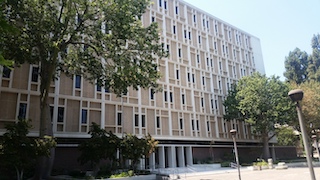As the reader of this article may be aware, a defendant has a federal constitutional right to defend oneself if he or she elects to do so. A trial court must grant the motion if the request is made within a reasonable amount of time prior to the commencement of trial, is unequivocal, and is made voluntarily, knowingly, and intelligently. People v. Lynch (2010) 50 Cal. 4th 693, 721.
However, a motion for self-representation must be made in a timely manner, meaning at a reasonable time before trial commences. People v. Windham (1977) 19 Cal. 3d 121, 124. The reasonable time requirement is not meant to limit a defendant’s right to self-representation, but is intended to prevent a defendant from unjustifiably delaying trial.
How this plays out in the real world is exemplified in the following summary of the Pomona Superior Court case of People v. William Lee Wright, Jr., which became a California Supreme Court case and a reported, published decision on December 16, 2021 (2021 DJDAR 12754).
The Gist of this Article: A judge may deny a motion by a defendant to represent himself or herself when the judge finds that the motion is likely only made to delay the trial and when there is no genuine legal or factual issue supporting the request, as the following summary exemplifies.
A jury in Pomona convicted Wright of the first-degree murder of Philip Curtis, a rock cocaine dealer in Pomona, and found true the special circumstance allegations that he committed the murder during the commission of a robbery and a burglary (Penal Code §§ 187(a), 190.2(a)(17)(i) (robbery murder) , 190.2(a)(17) (burglary murder)). The jury also convicted him of attempted murder of Julius Martin, Douglas Priest, Mario Ralph and Willie Alexander (Penal Code §§ 664, 187(a)) and robbery of Martin (Penal Code § 211), while in an attempt to buy marijuana in Long Beach.
The jury found true several sentence enhancements connected to the additional charges and returned a verdict of death and the judge sentenced Wright to death in 2002.
On his automatic appeal to the California Supreme Court, he raised many grounds for appeal, but this article’s scope will be limited to his argument that the trial court judge committed reversible error when it denied his request for self-representation under Faretta v. California (1975) 422 U.S. 806, made two days prior to the scheduled trial date. He further contended that the trial court abused its discretion when it denied his motion to substitute counsel under People v. Marsden (1970) 2 Cal. 3d 118.
Two days before trial, Wright made a motion to represent himself and the judge asked him why he wanted this. Wright answered, “I have a right under Faretta, don’t I?” The judge agreed, but asked him again: why did he want to represent himself? Wright explained that he had “conflict between me and my attorney.”
 Pomona Courthouse
Pomona Courthouse
The judge then cleared the courtroom and conducted a Marsden hearing. Wright explained that “I have a witness that has got some information, a witness to help me in my case. And my attorney is refusing to call her back, or to call her to get this information. Plus, I don’t see where the defense is being put up on my behalf.”
The judge then brought in defense counsel, who explained that the witness Wright was referring to was his girlfriend and that defense counsel had spoken to her numerous times, but she gave no helpful information and defense counsel regarded her as an officious intermeddler once he realized she had not information to provide. The judge then suggested to Wright that he would order the girlfriend to come to court to provide this information to defense counsel and Wright said no, he did not want her ordered to come to court for him.
The judge then denied Wright’s request to appoint alternative counsel under Marsden and warned Wright that if he is to represent himself, trial would proceed in two days. The judge warned him that he would not delay trial to let him prepare because there are two hundred jurors coming in. The witnesses have been subpoenaed to come into court as well. The judge then asked Wright if he were ready to proceed in two days and Wright said no, but he would be ready in “a month or two.”
The judge then asked Wright why he did not bring this motion up earlier and Wright said “it just came up. The judge then denied the motion for self-representation.
The California Supreme Court affirmed the denial, finding that Wright’s alleged concerns about his counsel and contacting his girlfriend for information seemed to be an attempt to delay instead of a real issue, particularly considering the court’s offer to have his girlfriend come to court to provide this information to counsel.
The citation for the California Supreme Court ruling discussed above is People v. William Lee Wright, Jr. (2021) 12 Cal. 5th 419, 287 Cal. Rptr. 3d 510, 500 P. 3d 267.
For more information about representing oneself, please click on the following articles:
 Pomona Courthouse
Pomona Courthouse